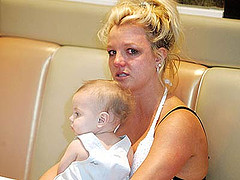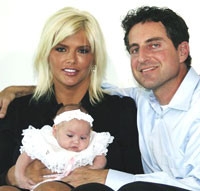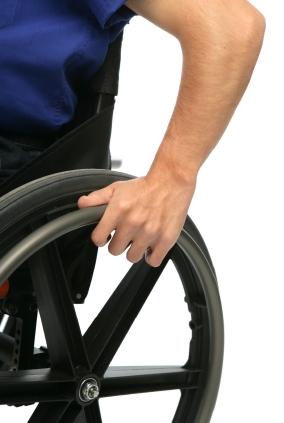Divorce & Custody Battle – Britney Spears & Kevin Federline
In the divorce between Britney Spears and Kevin Federline, Ms. Spears seeks legal and physical custody of their two sons, Sean and Jayden, with visitation rights for Mr. Federline.




In the divorce between Britney Spears and Kevin Federline, Ms. Spears seeks legal and physical custody of their two sons, Sean and Jayden, with visitation rights for Mr. Federline.




Is a person you care about going through a divorce? Do you think that person, not only needs an attorney, but needs someone to act in his/her best interest due to his/her cognitive disability?
If this person in your life is mentally incapacitated, it is likely his/her attorney will petition the Court for appointment of a guardian ad litem. A guardian ad litem protects, preserves and secures the interests of the individual that is mentally incapacitated.
So, you don’t want to pay child support anymore. What do you need to know?
To start, you should ask yourself the following questions:
1-How old is your child?
2-Does your child attend high school?
3- Does your child work? Full-time or Part-time?
4- Does your college attend college?5- Does he or she reside with your ex-spouse?
The answers to these questions will determine whether you should file a motion for emancipation.
As as initial matter, it is important to note the New Jersey court system encourages parties to a divorce to settle. The Courts prefer when parties can resolve financial and custodial issues without judicial intervention. The terms of settlement are embodied in a Property Settlement Agreement, also known as a Marital Settlement Agreement.
Oftentimes, a party files a motion for modification of a specific term in the property settlement agreement. New Jersey Courts permit this. The Courts allow parties to file post-judgment (post-divorce) motions for modifications of property settlement agreements (contracts).
In this respect, the contract, property settlement agreement, is treated vastly different in the family context than in a business or employment context. In the latter, there is very litttle room for change.
On or before January 23, 2007, the paternity of Dannielynn will be concluded.
 .
.
Former Playboy Playmate, TV reality star, and TrimSpa spokesperson, Anna Nicole Smith (born Vickie Lynn Hogan) is disputing the decision and attempting to fight the Court appointed order from U.S. Judge Robert Schnider, that she submit her four (4) month old daughter, Dannielynn to a DNA test to establish paternity.
Let’s face it – sometimes non-custodial fathers are delinquent in their child support payments. What is a custodial mother’s recourse? Perhaps, the custodial mother can call the probation department or file a motion to enforce litigant’s rights. There are many ways to enforce support orders and/or agreements.
May the custodial mother prevent her ex from seeing his children? Quite simply, the answer is ‘no’.
Make no mistake about it, a father’s refusal to pay child support is frowned upon. However, it is not up to the custodial mother to decide in what manner to best enforce support, especially if the actions affect children. This issue should be handled by the Courts.
What happens when a payor ex-spouse becomes disabled after the divorce and is no longer able to pay support obligations? Is he/she still obligated to pay?
In determining alimony, counsel fees, and property distribution, income may be imputed to a party who is voluntarily unemployed or underemployed; this requires intentional conduct without just cause.

In New Jersey, inheritance is viewed as separate property and is not subject to equitable distribution irrespective of when the inheritance is received. Nonetheless, inheritance can play a major role in assigning child support and alimony obligations. Keep in mind, inheritance monies should never be intermingled with joint assets. Always keep your inheritance separate from joint assets to avoid it being subject to equitable distribution.
For example, if the payee has stayed home to raise children and tend to the home, she (typically’) may not receive all she believes she is owed if she has inheritance monies. The fact that inheritance cannot be divided between the parties, does not prevent the interest earned from investing the inheritance being calculated into support obligations. By this, the payee may actually become a “payor” as well, and be forced to contribute to her support or the support of her children through the interest received on her inheritance.
UNDEREMPLOYMENT
In some circumstances, a party who is obligated to pay alimony and/or child support may change their employment, earn substantially less than before, and seek to have either obligation decreased on the basis of decreased income.
The New Jersey Courts will not overlook this event; it is not a matter of happenstance. In fact, New Jersey Courts may impute income to the payor up to the amount the payor earned at his/her prior employment.
In Mowery, the Court held it is not merely the present earnings of the payor, but the potential earning capacity that is the essence of this factor. Mowery v. Mowery, 38 N.J. Super. 92 102 (App. Div. 1955).
More often than not, divorce decrees and settlement agreements are dispositive of physical and legal custody of the children born of the marriage. In most situations, the parties have joint legal custody while one party maintains sole physical custody. The non-custodial parent is awarded parenting-time.
In some situations, the custody agreement which was awarded or agreed to is no longer in the child’s best interests. In order to change the custody arrangement in effect, a party must file a motion for modification of custody.
An award of custody is always subject to modification at any time upon a showing of substantial change in circumstance. The primary considerations of the court are the best interests of the child. The court looks to the bona fides of the party seeking modification upon changed circumstances, and will not view a custody agreement entered into by the parties, even in open court, as binding. Sheehan v. Sheehan, 51 N.J.Super. 276 (App. Div. 1958).